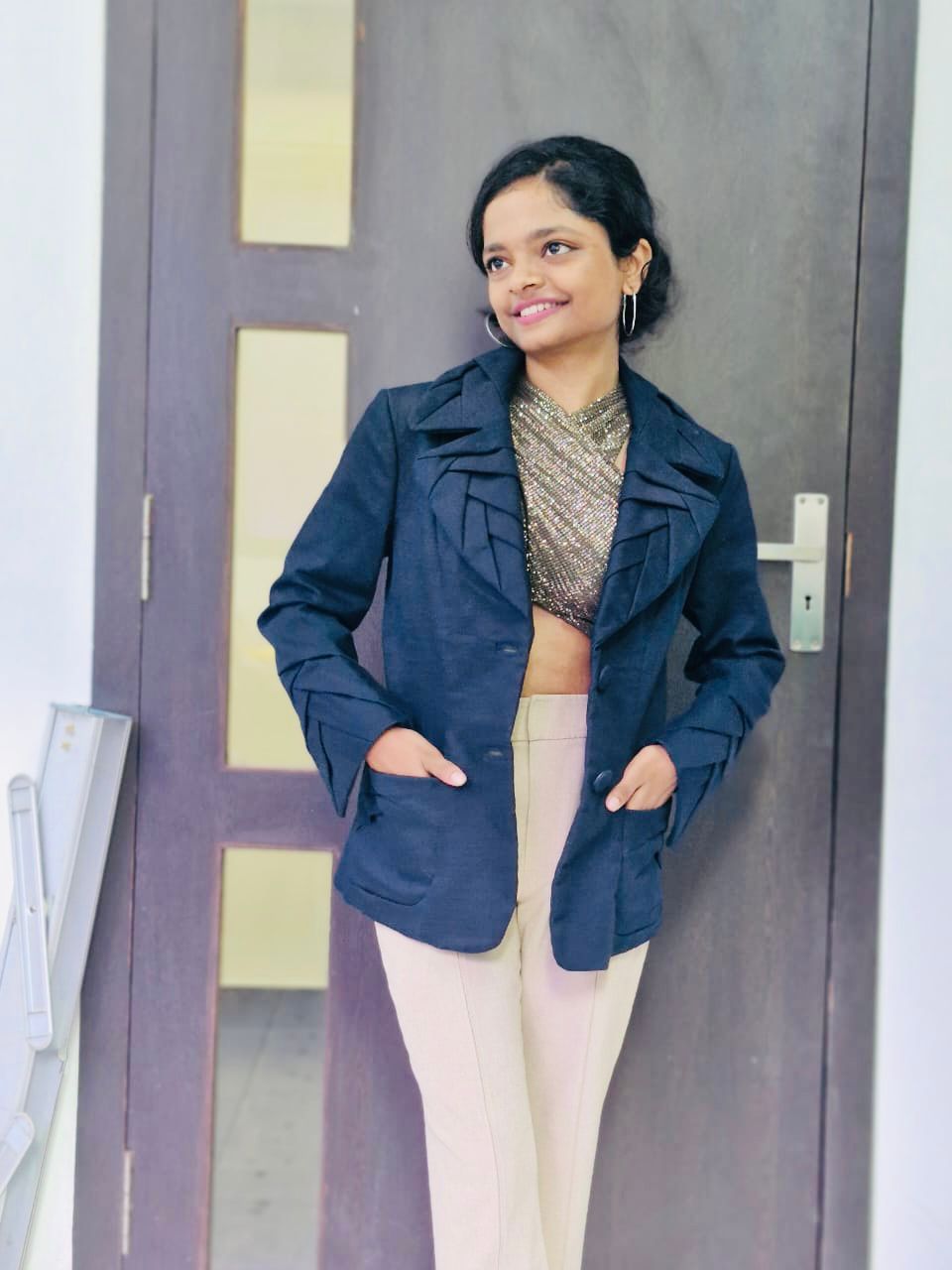Contact : +9190604 47745
Advanced Fashion Designing is a comprehensive course designed for individuals with foundational knowledge in fashion who seek to deepen their skills and understand the nuanced aspects of the industry. This course goes beyond the basics, incorporating complex design principles, technical skills, and business acumen to prepare students for the dynamic and competitive world of fashion. The curriculum often covers topics like advanced pattern-making, garment construction, digital illustration, fashion forecasting, sustainable design, and brand development.
Key Areas of Study in Advanced Fashion Designing
-
Advanced Pattern-Making and Garment Construction
Advanced fashion courses typically start with intensive sessions on pattern-making and garment construction. Students learn about draping, fabric manipulation, and the development of complex patterns tailored for high fashion. Techniques for creating unique silhouettes, understanding fabric behavior, and producing high-quality finishes are also explored. These skills allow designers to translate their ideas from sketches to actual garments, making them indispensable in the fashion production process.
-
Digital Illustration and CAD (Computer-Aided Design)
In today’s digital age, proficiency in fashion software like Adobe Illustrator, Photoshop, and CAD is critical. Advanced fashion design programs emphasize digital illustration, allowing designers to present their ideas professionally and efficiently. These tools also streamline the design process, from initial sketches to final technical drawings, and are crucial for tasks such as developing textile prints, pattern layouts, and creating virtual garment simulations.
-
Textile Studies and Fabric Technology
Understanding fabrics is fundamental to fashion design, especially in advanced courses where students experiment with a range of materials. Textile studies include the science behind fiber properties, weaves, fabric finishes, and how these impact design. This knowledge helps designers choose the right fabric for each garment, ensuring functionality, durability, and aesthetic appeal. Students may also explore eco-friendly materials, as sustainability has become a key focus in the fashion industry.
-
Fashion Forecasting and Trend Analysis
Fashion is fast-paced, with trends constantly evolving. Advanced courses include modules on fashion forecasting and trend analysis to help students predict styles, colors, and patterns that will dominate future seasons. By examining historical trends, cultural shifts, and market demand, students learn to design collections that resonate with current and upcoming consumer preferences. This skill is crucial for staying relevant and competitive in the industry.
-
Sustainable and Ethical Fashion
As the fashion industry moves toward more sustainable practices, advanced courses often cover sustainable design principles and ethical production methods. Students learn about eco-friendly materials, zero-waste techniques, and responsible sourcing. This segment also discusses labor practices, environmental impact, and strategies for creating sustainable fashion brands, which is particularly valuable for those interested in developing their own labels.
-
Brand Development and Marketing
Advanced fashion designing includes business aspects, such as branding, marketing, and entrepreneurship. Students learn how to build a fashion brand, create a unique identity, and communicate effectively with their target audience. Coursework often covers market research, pricing strategies, e-commerce, and digital marketing. This business training equips aspiring designers with the knowledge needed to promote their creations and succeed in a competitive market.
-
Portfolio Development and Industry Exposure
Building a professional portfolio is a critical component of an advanced fashion design course. Students compile a collection of their best work, often including a capstone project, to showcase their skills and creativity. Many courses also offer internships, guest lectures from industry experts, and opportunities to participate in fashion shows or competitions. These experiences provide invaluable insights into the industry and give students a platform to display their designs.
Career Opportunities for Advanced Fashion Designers
With an advanced fashion designing background, graduates are equipped for diverse roles in the industry. They can work as fashion designers, stylists, textile designers, fashion illustrators, or creative directors. Many graduates also pursue careers in brand management, fashion consulting, or launch their own fashion labels. The advanced skill set gained in these programs makes them highly valuable in both established companies and as independent entrepreneurs.
Conclusion
Advanced Fashion Designing is an ideal choice for those passionate about fashion and ready to invest in their professional growth. This course is designed to transform raw talent into refined skills, equipping students with both creative and technical expertise. By understanding trends, sustainability, and the business aspects of fashion, designers can build a versatile career and contribute meaningfully to the future of fashion.
